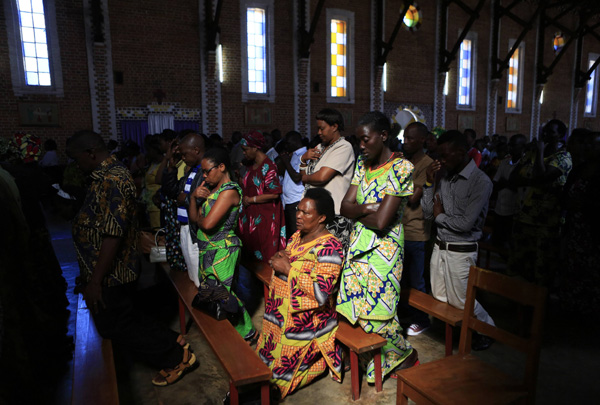Rwandans told 'never again'
Kagame has dropped military fatigues for sharp suits and has been praised for attracting investors, building an efficient health system and reducing poverty, but is also criticised for an authoritarian style.
Western nations cut some aid in 2012 after his government was accused of backing rebels in neighbouring Congo. South Africa has also accused Kigali of sending hit squads to kill exiled opponents on South African soil.
Rwanda vigorously denies both charges.
Many Rwandans, who have seen dramatic changes with new roads and other benefits, say Kagame has helped unite the nation.
"Before I would feel ashamed or afraid of saying anything at gatherings but now we feel that we are all Rwandan with no picture of ethnicity," Samuel Munyarugerero, a 45-year-old Hutu and former soldier in the army before the genocide.
"Yes, Rwandans are reconciled."
Some welcome the gains but worry about the methods.
"The politics of Rwanda is coercive," said 33-year-old Hutu agronomist from Kigali, who like other critics asked not to be named for fear of repercussions. "If the government could mobilize people with no coercion, Rwanda would be much better."
Kagame rejects the charge of restricting political rights.
Speaking in Kigali, British Foreign Secretary William Hague on Monday called for more freedoms in the country.
"We have to acknowledge the very special circumstances of the last 20 years, the leadership and the direction that was necessary to pull a country together," he said.
"But of course we would argue, yes, political space needs to be opened up over the coming years."






















